Today we were to travel from Tuticorin to the small village of Sawyerpuram. But first through Tuticorin and past lines of ramshackle shops and places of business reminiscent of those we first saw in Porbandar. Our guide, Shiva (not God-like and no elephant head), told us that, in the area around Tuticorin, Tamil is spoken. The main languages throughout India are Hindi and English. The population is 74% Hindu, 6% Muslim and 20% Christian (mainly Catholic). Shiva claimed that 86% of the population is educated. Children go to kindergarten from age two and are in school to 17. Many go on to university.
Traditional dress is the six metre sari for women and the four metre lunghi for men. Most younger people wear western dress.
The style of wearing a sari varies from one part of India to another and according to class. Those women who regard themselves from an upper class wear a more intricately pleated sari than those seen here. One of our earlier guides, Rashmi, told us it takes time to learn how to do the pleating and requires many pins.
Salt is produced from underground water, pumped up and dried in the sun to leave the dry salt. Water has been a problem with no rain whatsoever for three years and then heavy monsoon rains last year.
We drove past Rice paddies and Bananas plantations - baby plants grow under the old and are easily transplanted. Soup is made out of the stems. Leaves are used as a plate. Bananas seem to be almost as multi purpose as we had learned coconuts are.
As we drove to Sawyerpuram, Shiva talked of life in his part of India. He said dhobi men, barbers, tailors, shoe makers and potters were all different castes. Castes are now illegal but in practice people don't readily move to another profession.
Many things are against the rules but...... Dowry is illegal but .......
Many are poor and no holiday is ever taken - money goes instead to save for education and weddings. Children remain dependant on parents if they are not in employment.
We stopped at a small plantation for a short tour of the banana, lime, peanut, turmeric, curry and many other plants. Refreshment of coconut juice and small, sweet bananas - very good, wish we could get them at home.
But the highlight of our trip was a visit to a private school covering children from 4 to 11. Our visit had been well prepared for and started with a welcome at the entrance.
Then a tour round the classrooms. We were received enthusiastically by the children, who gave every appearance of being happy there.
We were then entertained by the children to various dances.
On our way back we visited a poppadum factory. Poppadums have never been a favourite of mine but this could easily have caused me never to eat one again.
But having seen them made...
...and dried outside...
...I tried one and it was surprisingly good.
Then back to Minerva for our departure from India and on to Sri Lanka

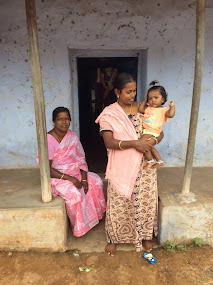


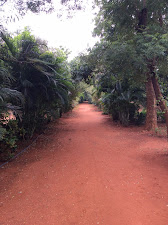
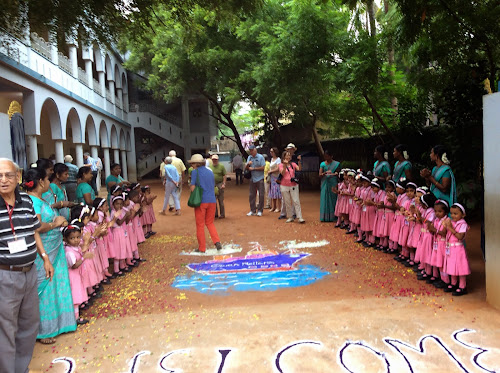

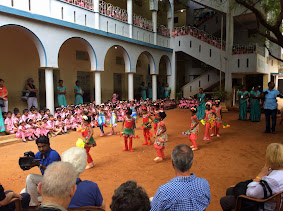
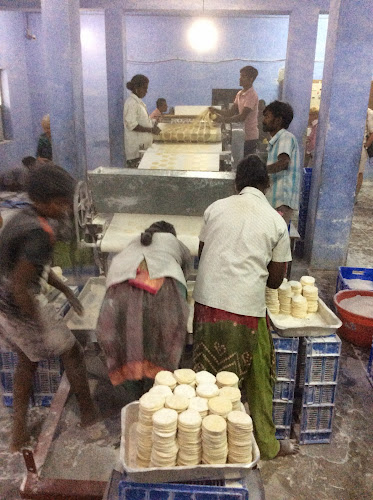


No comments:
Post a Comment